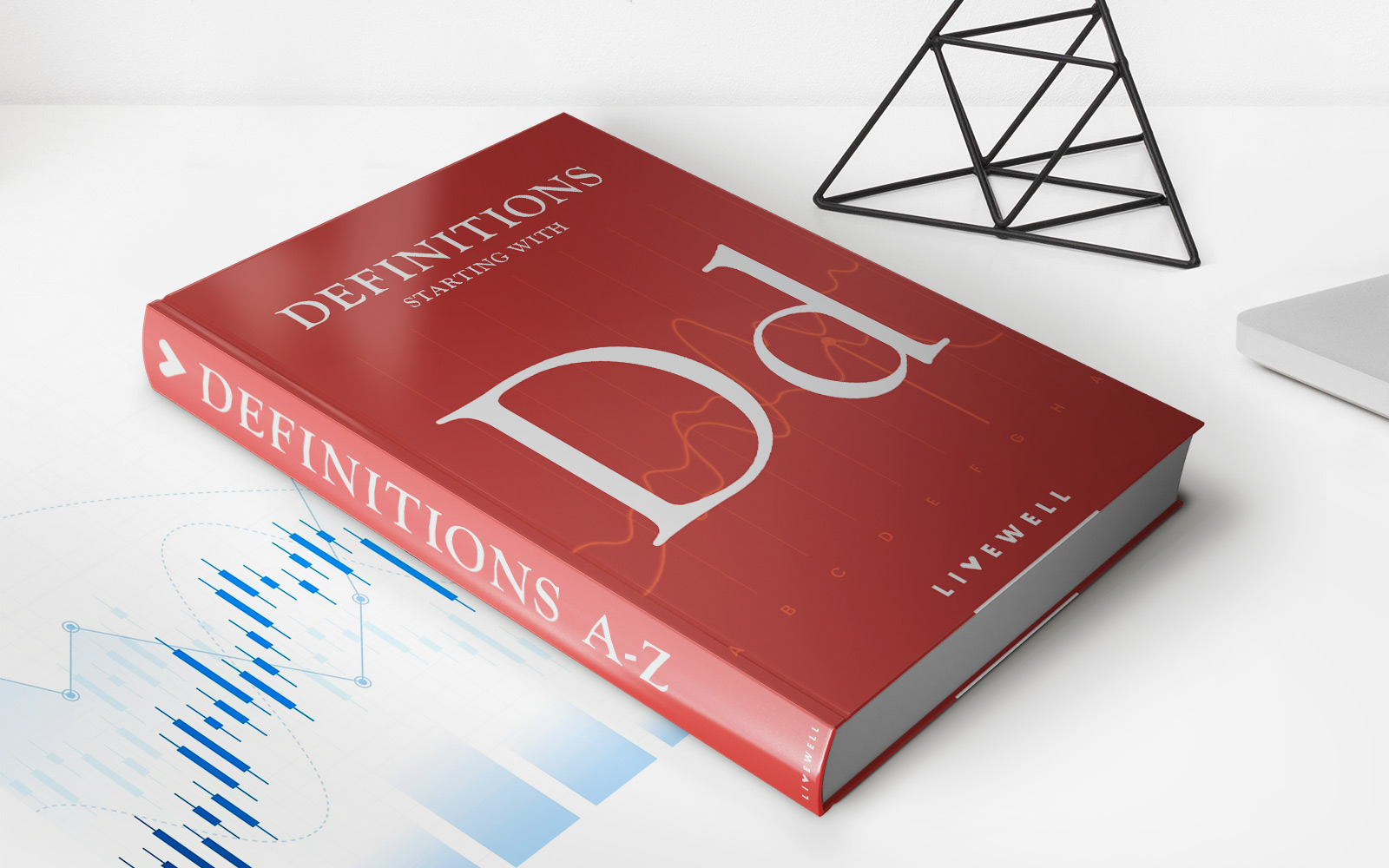

Finance
What Is A Renter’s Insurance Deductible?
Published: November 28, 2023
Learn about renter's insurance deductibles and how they can impact your finances. Find out what a renter's insurance deductible is and how to choose the right amount for your needs.
(Many of the links in this article redirect to a specific reviewed product. Your purchase of these products through affiliate links helps to generate commission for LiveWell, at no extra cost. Learn more)
Table of Contents
- Introduction
- Understanding Renter’s Insurance Deductible
- How Does a Renter’s Insurance Deductible Work?
- Factors Affecting the Renter’s Insurance Deductible
- Choosing the Right Renter’s Insurance Deductible Amount
- Pros and Cons of Higher and Lower Deductibles
- Frequently Asked Questions about Renter’s Insurance Deductible
- Conclusion
Introduction
Renter’s insurance is an essential protective measure for those who live in rented homes or apartments. It provides coverage for personal belongings and liability in the event of damage, theft, or accidents. However, the concept of a renter’s insurance deductible often confuses individuals who are new to insurance policies.
The renter’s insurance deductible is the amount that the policyholder is responsible for paying out of pocket before the insurance company starts covering the expenses. Basically, it is the portion of the claim that you must pay before your insurance kicks in. Understanding how the deductible works is crucial in determining the cost and coverage of your insurance policy.
Throughout this article, we will delve into the intricacies of renter’s insurance deductibles, how they work, and factors to consider when choosing the right deductible amount for your needs.
Whether you’re a seasoned renter or a first-time tenant, this guide will provide you with the necessary insights to make informed decisions when it comes to your renter’s insurance deductible.
Understanding Renter’s Insurance Deductible
Before we dive into how a renter’s insurance deductible works, let’s first understand what a deductible is in the context of insurance. A deductible is the amount of money that an insured individual must pay out of pocket before their insurance coverage begins. It serves as a means to share the financial responsibility between the policyholder and the insurance company.
When it comes to renter’s insurance, the deductible works similarly. If you need to file a claim for a covered loss, such as stolen property or damage to your belongings, you will be required to pay the deductible amount specified in your policy before your insurance provider will reimburse you for the remaining expenses.
The reasoning behind having a deductible is to encourage responsible insurance usage and reduce the number of small and frivolous claims. By having policyholders contribute to the cost of their claim, insurance companies can focus their resources on more significant losses and maintain affordable premiums for their customers.
It’s important to note that the renter’s insurance deductible only applies to property-related claims, such as theft or damage to personal belongings. Liability claims, which involve injuries to others on your property, usually have a separate deductible or may not require one at all.
Now that we have a basic understanding of what a deductible is, let’s take a closer look at how a renter’s insurance deductible works in practice.
How Does a Renter’s Insurance Deductible Work?
When an unfortunate event occurs that leads to a covered loss, such as a break-in, fire, or water damage, you will need to file a claim with your renter’s insurance provider. Once the claim is submitted, the insurance company will assess the damage and determine the total cost of repairs or replacement.
At this point, your renter’s insurance deductible comes into play. Let’s say your deductible is $500, and the total cost of the claim is $2,000. You will be responsible for paying the $500 deductible out of pocket, while the remaining $1,500 will be covered by your insurance provider.
It’s important to note that the deductible is a one-time payment per claim. If you experience multiple losses within the same policy term, you will need to pay the deductible for each claim separately.
Keep in mind that the deductible amount you choose will have an impact on your monthly or annual premium. Generally, higher deductibles result in lower premiums, while lower deductibles come with higher premiums. This means that you need to find the right balance between your out-of-pocket expense at the time of the claim and your ongoing insurance costs.
It’s also worth noting that some insurance providers offer the option of a disappearing or vanishing deductible. With this feature, your deductible decreases or disappears altogether over time if you remain claim-free. It can be a beneficial incentive to encourage policyholders to maintain a history of responsible coverage, as it reduces their financial burden in the event of a loss.
Understanding how your renter’s insurance deductible works is essential in managing your overall insurance costs and ensuring you have the coverage you need to protect your belongings and liability as a renter.
Factors Affecting the Renter’s Insurance Deductible
When selecting a renter’s insurance policy, it is important to consider several factors that can affect the deductible amount. These factors can vary depending on the insurance company and your individual circumstances. Let’s explore some of the key factors that can influence the renter’s insurance deductible:
- Insurance Provider: Different insurance companies may offer varying deductible options. Some may have a standard deductible amount, while others allow you to choose from a range of deductible options. It is crucial to understand the deductible options offered by different providers and compare them to find the one that best suits your needs.
- Policy Coverage: The extent of your renter’s insurance coverage can affect the deductible amount. For example, if you choose to include additional coverage, such as coverage for high-value items or natural disasters, the deductible amount may be higher.
- Location: The location of your rented property can also impact the renter’s insurance deductible. Areas prone to certain risks, such as flood or earthquake zones, may have higher deductibles due to the increased likelihood of claims.
- Claim History: Your claim history, both with your current insurer and any previous insurers, can influence your deductible amount. If you have a history of frequent claims, insurance providers may assign a higher deductible to mitigate their potential risk.
- Covered Perils: The types of perils covered under your renter’s insurance policy can affect the deductible. Generally, damages caused by certain perils, like fire or theft, have a standard deductible, while damages from perils such as flood or earthquake may have a separate, higher deductible.
- Personal Preference: Ultimately, your personal preference and financial situation play a role in determining the renter’s insurance deductible. You may opt for a higher deductible to lower your premium costs or choose a lower deductible if you prefer a smaller out-of-pocket expense at the time of a claim.
Considering these factors and discussing them with your insurance provider will help you make an informed decision regarding the deductible amount that best aligns with your needs and budget.
Choosing the Right Renter’s Insurance Deductible Amount
Choosing the right renter’s insurance deductible amount requires careful consideration of your financial situation, risk tolerance, and coverage needs. Here are some factors to keep in mind when determining the ideal deductible:
- Budget: Evaluate your budget and determine how much you can comfortably afford to pay out of pocket in the event of a claim. If you have substantial savings and can handle a higher deductible, opting for a higher amount may help reduce your premium costs.
- Risk Assessment: Consider the potential risks and likelihood of a claim. If you live in an area prone to theft, accidents, or natural disasters, you may prefer a lower deductible to reduce your financial burden in the event of a loss.
- Claim Frequency and Severity: Assess your personal claim history and the likelihood of filing a claim. If you rarely file claims or are confident in maintaining a careful and secure living environment, a higher deductible may be a viable option to minimize your insurance costs.
- Property Value: Evaluate the total value of your personal belongings. If you own high-value items, you may want to consider a lower deductible to ensure you can adequately replace them in the event of a covered loss.
- Premium Considerations: Understand the impact of your deductible choice on your premium. Higher deductibles generally result in lower premium payments, while lower deductibles are associated with higher premiums. Have a clear understanding of how these cost considerations align with your financial goals.
Ultimately, selecting the right renter’s insurance deductible involves striking a balance between your upfront out-of-pocket expense and the ongoing cost of your insurance coverage. It’s important to carefully evaluate your needs and weigh the potential financial implications of each deductible option before making a decision.
If you’re unsure about the best choice for your specific situation, consider consulting with an insurance professional who can assess your needs and help guide you towards the most suitable deductible amount.
Pros and Cons of Higher and Lower Deductibles
When choosing a renter’s insurance deductible, it’s important to weigh the pros and cons of opting for a higher or lower deductible amount. Here are some factors to consider:
Higher Deductibles:
- Lower Premiums: One of the significant advantages of selecting a higher deductible is that it typically results in lower premium payments. By taking on a larger portion of the financial responsibility in the event of a claim, insurance companies are willing to offer reduced premiums.
- Cost Savings: Higher deductibles can provide cost savings in the long run. If you are a responsible and cautious tenant who rarely files claims, you may save money by opting for a higher deductible and paying lower premiums over time.
- Greater Control: Having a higher deductible gives you more control over your insurance costs. You can choose to allocate more funds towards your emergency savings, allowing you to cover most smaller losses without relying on your insurance coverage.
Lower Deductibles:
- Less Out-of-Pocket Expense: The most apparent advantage of a lower deductible is that you will have a smaller out-of-pocket expense at the time of a claim. This can be beneficial if you prefer to minimize the financial burden when faced with unexpected losses.
- Quicker Reimbursement: With a lower deductible, you will reach the reimbursement threshold sooner, meaning your insurance will kick in earlier. This can be advantageous if you want immediate support in recovering from a loss.
- Peace of Mind: Lower deductibles provide a sense of comfort and security, knowing that you have a smaller financial hurdle in the event of a claim. This can be particularly valuable if you have high-value items or live in an area with a higher risk of specific perils.
Ultimately, the decision between a higher or lower renter’s insurance deductible depends on your personal risk tolerance, financial situation, and coverage needs. Consider your budget, claim history, and the value of your belongings when making your choice.
It’s important to note that regardless of the deductible amount you choose, the primary purpose of renter’s insurance is to protect you from significant financial loss. Therefore, focus on selecting the deductible that aligns with your overall financial goals and provides you with the peace of mind and coverage you need as a renter.
Frequently Asked Questions about Renter’s Insurance Deductible
Here are answers to some commonly asked questions about renter’s insurance deductibles:
Q: Can I choose my renter’s insurance deductible amount?
A: In most cases, yes. Insurance providers typically offer a range of deductible options, allowing you to choose the amount that best suits your needs and budget. However, some policies may come with a predetermined deductible amount.
Q: Is the deductible paid for each claim?
A: Yes, the deductible is typically paid for each separate claim you make. If you experience multiple losses within the same policy term, you will be responsible for paying the deductible for each claim individually.
Q: What happens if I can’t afford to pay the deductible?
A: If you are unable to pay the deductible, your insurance provider will not cover the remaining cost of the claim. It’s important to choose a deductible amount that you can comfortably afford in the event of a loss.
Q: Can I change my renter’s insurance deductible amount?
A: In most cases, you can adjust your deductible amount when renewing or modifying your renter’s insurance policy. However, it’s important to review your policy terms to understand the specifics of making changes to your deductible.
Q: What is a disappearing deductible?
A: Some insurance providers offer a disappearing deductible feature, which reduces or eliminates your deductible over time if you remain claim-free. This can be a beneficial incentive for responsible policyholders, as it helps reduce their out-of-pocket expenses in the event of a claim.
Q: Does my renter’s insurance deductible apply to liability claims?
A: Typically, no. Liability claims, which involve injuries to others on your property, usually have a separate deductible or may not require one at all. Your insurance provider can provide specific details and clarification regarding deductible applicability to liability claims.
Remember, it’s important to consult with your insurance provider or an insurance professional to get accurate and personalized answers to any questions you may have regarding your specific renter’s insurance policy and deductible.
Conclusion
Understanding the concept of a renter’s insurance deductible is crucial in navigating the complexities of your coverage. By knowing how the deductible works and considering the factors that influence it, you can make informed decisions when choosing the right deductible amount for your needs.
Higher deductibles offer the advantage of lower premium costs and potential long-term savings, making them suitable for responsible tenants who rarely file claims. On the other hand, lower deductibles provide peace of mind and immediate support in the event of a loss, but come with higher premium payments.
Factors such as your budget, risk tolerance, claim history, and the value of your belongings should be considered when determining the ideal deductible for your renter’s insurance policy. It’s important to strike a balance between your out-of-pocket expense and the ongoing cost of your coverage to ensure you have the protection you need without straining your finances.
Remember to review your renter’s insurance policy carefully and consult with your insurance provider or an insurance professional to fully understand the terms and conditions surrounding your deductible. They can provide personalized guidance and answer any questions you may have regarding your specific policy.
Having renter’s insurance with a suitable deductible amount provides you with a safety net, protecting your personal belongings and providing liability coverage in case of unforeseen events. It offers peace of mind and financial security, allowing you to enjoy your rented home with confidence.














